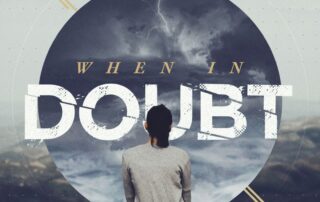A Cup of Love
by Jeanne Melberg
We know the story; from the Garden, the Fall — resulting from Adam and Eve’s experiment with sin; by severing themselves from the “Vine”. There is no life apart from the Vine. The wages of sin being death: with humanity severed from the Vine, you could say, “life was now living under the power of death; the dry bones of consequences”. Thus, a resurrection was in order. This called for reparations.
Therefore, as prophesied throughout the previous ages, God “…made himself nothing, taking the very nature of a servant, being made in human likeness.
And being found in appearance as a man, he humbled himself and became obedient to death — even death on a cross.” (Philippians 2:7-8).
The root word of crucifixion is crus or crux, meaning “cross”. Cross means to travel or pass over. Coincidentally, crux or cross shares its origin with the word crucible. A crucible is a pot, or CUP in which metals or other substances may be melted or subjected to extremely hot temperatures. A crucible is also defined as a “severe trial” that leads to the creation of something new. Thus, Jesus “drank” the cup, willingly traveling through the crucible of God’s Holy refining fire — his consuming fire; his righteous judgment — in order to pay the wages and bring us New Life. By “way of the cup” or “the Way”, “… he has caused us to be born again to a living hope through the resurrection of Jesus Christ from the dead.” (1 Peter 1:3 ESV).
His crucifixion is our crucifixion; His resurrection is our resurrection. As Paul affirms in Galatians 2:20:
“I [We] have been crucified with Christ and I no longer live, but Christ lives in me.”
Therefore, the crucifixion and resurrection seem to serve two purposes, both somewhat of a paradox.
- The Deed. Christ took the cup and laid down His life that we may LIVE by grace with the empowerment of the Holy Spirit. That same Holy Spirit, in turn, enables us to follow Him: to take up our own cross, to drink the cup given to us.
- The Way. Encoded in Christ’s deed, is the Way. Somehow, the ultimate deed of love is not only the way to love, it is THE WAY OF LOVE.
This Way of Love is wonderfully expressed in The Prophet, by poet Kahlil Gibran, in the following:
When love beckons to you, follow him, though his ways are hard and steep. And when his wings enfold you, yield to him, though the sword hidden among his pinions may wound you. And when he speaks to you, believe in him, though his voice may shatter your dreams as the north wind lays waste the garden. For even as love crowns you so shall he crucify you. Even as he is for your growth, so is he for your pruning. Even as he ascends to your height and caresses your tenderest branches that quiver in the sun, so shall he descend to your roots and shake them in their clinging to the earth.
Like sheaves of corn he gathers you unto himself. he threshes you to make you naked. he sifts you to free you from your husks. he grinds you to whiteness. he kneads you until you are pliant, and then he assigns you to his sacred fire, that you may become sacred bread for God’s sacred feast.
All these things shall love do unto you that you may know the secrets of your heart, and in that knowledge become a fragment of life’s heart. But if in your fear you would seek only love’s peace and love’s pleasure, then it is better for you that you cover your nakedness and pass out of love’s threshing-floor, into the seasonless world where you shall laugh, but not all of your laughter, and weep, but not all of your tears.
…. And think not you can direct the course of love, for love, if it finds you worthy, directs your course. [Emphasis added.]
Note. To access scripture links that don’t appear in the email version, read the web version in your browser.





